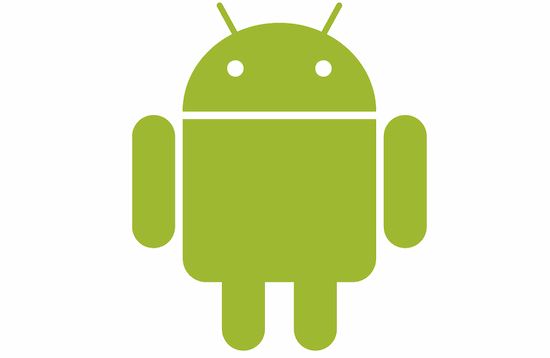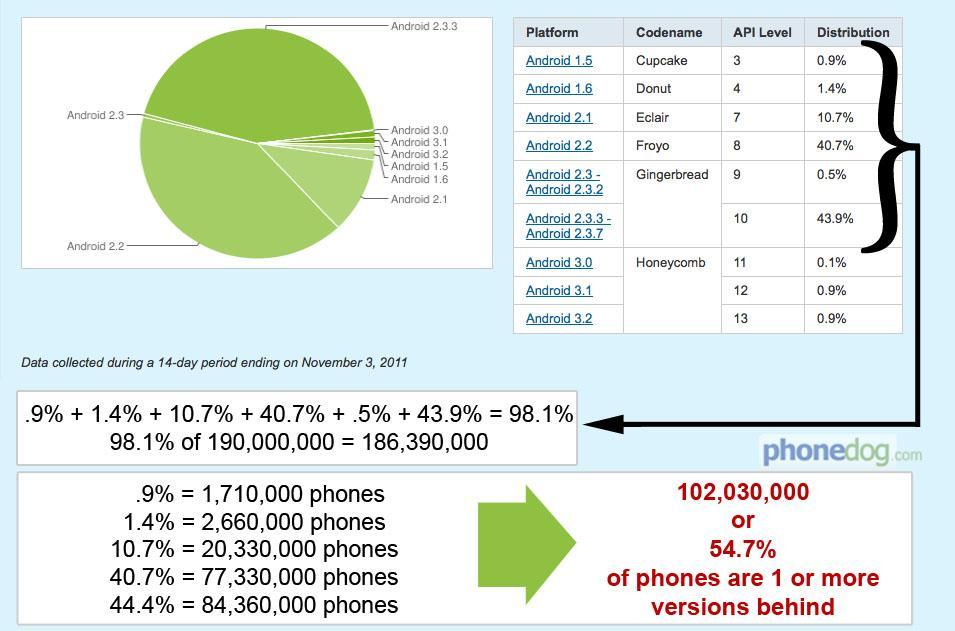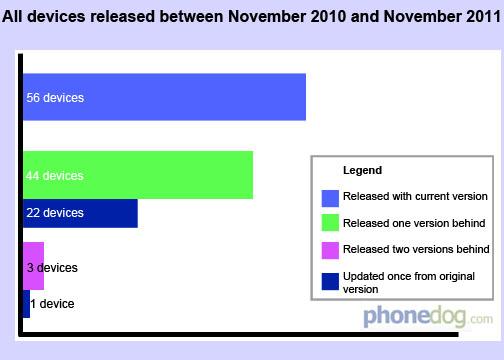
Fragmentation. The very word alone sends chills down one's back. For any person who appreciates Android, it is the bane of his existence. It seems to be the argument that everyone who dislikes Android falls back on. In fact, Apple recently said that the rise of new tablets like the Amazon Kindle Fire, which many bloggers and analysts feel could actually give the iPad a run for its money, doesn't really bother them, but rather the company views these tablets as sort of "tools" to seduce developers away from Android due to the fact that they will further fragment the OS.
But is fragmentation really that big of a problem? We know the percentages and we've seen Google's reports on Android distribution, but how deep does it go? That's a question I've wanted to have the answer to for a while. I've been just like several Android fans - I've brushed the idea of fragmentation off to the side as if it didn't really matter what version of the OS I was running. I couldn't do that anymore. So, I sat down and crunched the numbers. Honestly, they aren't pretty.
(Please note that the purpose of this article is not to "bash" Android. Comparisons between Android's update process and that of other OSes will not be made unless necessary. The purpose of this research is simply to get a clear view of the numbers and the facts. Basically, I come in peace.)
There are some very interesting charts and graphs out there that illustrate other researchers' findings, most of them very useful. Michael Degusta from The Understatement blog recently reported on so-called "Android Orphans". He showed his findings after tracking the update history for eighteen popular Android devices released between 2008 and Q1 and Q2 of 2010. In short, seven of the eighteen phones never ran a current version of the OS; twelve of the eighteen only ran a current version of the OS for a few weeks or even less; ten of the eighteen were at least two major versions behind well within their two-year contract period (not including minor versions with security updates); and sixteen of the eighteen will almost certainly never get Ice Cream Sandwich, to be released in a few weeks. The tracked devices include the HTC Hero, Motorola Droid, HTC Droid Eris, HTC Droid Incredible, HTC EVO 4G, and other highly popular Android handsets.
This got me thinking. So, I decided to crunch a few numbers of my own and see what I would come up with. I did two "mini-studies." The first calculates how many Android phones are running an old version of the OS and the second gives a rough update history of all of the Android phones released worldwide in the past year.
First, exactly how many Android phones are running around with an outdated version of the OS? Google recently revealed that there are 190 million active Android devices in the world. The company also released the latest Android distribution chart, which can be viewed below along with my calculations. If there are 186,390,000 Android phones in the world (see my calculations in the chart below), according to Google's percentages:

Those numbers are astounding.
So, let's track some of these devices and see how they fared with these updates. What led to 54 percent of Android phones being behind? Well, of the roughly 103 major Android phones that were released from November 2010 to November 2011 worldwide (not including devices by unknown manufactures like KCPT, to give a hypothetical example):

As Michael Degusta pointed out in his report, "every US carrier is still selling - even just now introducing - smartphones that will almost certainly never run Gingerbread and beyond."
Some say that this problem could easily be solved by Google having a tighter grip on its partners and finding a way to update every phone where possible. While that will help, the problem is it's not just software fragmentation that is affecting the OS, it's hardware fragmentation, too.
A November 2011 report by WDS brought out that, along with fragmentation of the Android OS itself, "consumers' expectations for performance are dismantled by a different hardware build and by potentially resource-hungry operator and manufacturer overlays." In an interview with ReadWriteWeb, Tim Deluca-Smith, WDS' Vice President for Marketing, said, "While Android deployments may show a higher propensity to hardware failures than rival OS platforms, analysis of these hardware faults shows no principle defects on the platform; i. e., the platform is not predisposed to one particular hardware defect." Basically, the problem is not just software, it's cheaply-made hardware as well.
Literally, everyone. Fragmentation affects developers, retailers, and users (that's you). The same report by WDS that shed light on the problem of hardware fragmentation, showed that because of the higher than average propensity for hardware failure on Android-based devices (14 percent), operators are spending $2 billion a year to provide support and repairs for their customers. (As a note, that number of 14 percent is one percentage point lower than the 15 percent mark manufacturers use to determine defective phones. This shows you how poorly some of these Android devices are constructed.)
The software and hardware fragmentation of Android scares developers. A Q1 2011 study conducted by Baird venture capitalist William Powers in which 250 developers were surveyed, found that 86% of them felt the fragmentation of Android to be anywhere between somewhat of a problem and a huge problem and many of these developers prefer to develop within iOS' or BlackBerry's unified system. This is what Apple was referring to in the quote I alluded to earlier. Software fragmentation is difficult enough to deal with, but hardware fragmentation means that developers also have to optimize their apps for several devices differing in capabilities and specifications.
And then of course, there's us. The consumers. We could have one of the 102 million devices that are running an outdated version of Android. What exactly are we missing out on? Well, things like NFC support, Live Wallpapers, speech-to-text, exchange support, an improved camera and gallery, mobile hotspot support, the ability install apps on your SD card, and a new virtual keyboard, not to mention overall UI enhancements and improvements in power consumption and performance. Those are just a few of the hundreds of new features and enhancements that some are missing. And in a few weeks, when Ice Cream Sandwich is released, we'll all be a version behind.
Typically, when a problem affects over 50 percent of a company's devices, that's a huge problem. It appears that Google realizes how truly deep this problem is. The company has been a little more protective of the source code for Honeycomb, only releasing it to a few manufacturers. Some have used this as a reason to attack Google since Android is supposed to be fully open. However, can you see why they've taken such drastic measures? As WDS' Tim Deluca-Smith said, "Android has done great things for the industry, even low-cost product. However, carriers must be better at bringing the variety of Android builds onto their networks. Low cost has its place. It shouldn't be used across all customer segments as a means to reducing subsidy costs." Yes, budget-friendly Android phones are needed. Not everyone can afford to spend $200, $100, or even $50 on a smartphone. However, shipping products that provide low-quality performance is helping neither the consumer or the manufacturer.
Google has also formed the Android Update Alliance and partnered with several manufacturers to ensure that updates are sent out in a timely manner. It's time to see the fruits of that alliance.
Unfortunately, a lot of damage has already been done. Even if Ice Cream Sandwich is the unifying version and the Alliance works the way that it should, how long will it take before the playing field is even and versions 1.5 through 2.2 aren't even on a million devices? The problem can be solved and I trust that Google will do its best, but for you Android loyalists, you may have to endure a few more taunts of "fragmentation, fragmentation, fragmentation" before the OS is truly free of the problem. The life of an Android loyalist isn't an easy one, but it has its shining moments.